IEEE Future Networks Tech Focus Editorial Board
Read the current issue of the IEEE Future Networks Tech Focus here.
IEEE Future Networks Tech Focus Editorial Board Members:

Rod Waterhouse (IEEE Future Networks Publications Co-Chair and IEEE Future Networks Tech Focus Editor-in-Chief) received his BEng, MS, and PhD in Electrical Engineering from the University of Queensland, Australia, in 1987, 1989 and 1994, respectively. In 1994 he joined RMIT University as a lecturer, became a Senior Lecturer in 1997 and an Associate Professor in 2002. From 2001 – 2003 Dr Waterhouse was with the venture-backed Dorsal Networks which was later acquired by Corvis Corporation. In 2004 he co-founded Pharad, an antenna and high performance RF-over-fiber technologies company of which he is the Chief Technology Officer. From 2003 he was also appointed as a Senior Fellow within the Department of Electrical and Electronic Engineering at the University of Melbourne. Dr Waterhouse’s research interests include antennas, electromagnetics and microwave photonics engineering. He has over 290 publications in these fields, including 2 books and 4 book chapters. Dr Waterhouse received the grade of IEEE Fellow for his work on printed antenna and microwave photonic technologies. Dr Waterhouse was an Associate Editor for IEEE AP Transactions during 2003 – 2009 and he is the Member at Large for IEEE Int. Topical Meeting on Microwave Photonics since 2016. Dr Waterhouse has been on the IEEE Photonics Society Fellow Evaluation Committee since 2013 and was a Representative of the IEEE Photonics Society for the National Photonics Initiative in 2015. In 2000, IEEE Third Millennium Medal for ‘Outstanding Achievements and Contributions’.
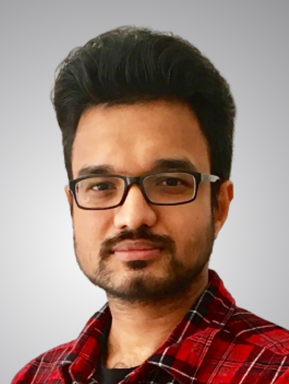 Mithun Mukherjee (Managing Editor) (Senior Member, IEEE) received the B.E. degree in electronics and communication engineering from the University Institute of Technology, Burdwan University, Bardhaman, India, in 2007, the M.E. degree in information and communication engineering from the Indian Institute of Science and Technology, Shibpur, India, in 2009, and the Ph.D. degree in electrical engineering from the Indian Institute of Technology Patna, Patna, India, in 2015. He is currently a Professor with the College of Artificial Intelligence, Nanjing University of Information Science and Technology, Nanjing, China. He has (co)authored more than 80 publications in peer-reviewed international transactions/journals and conferences. His current research interests include wireless communications, fog computing, and ultrareliable low-latency communications.
Mithun Mukherjee (Managing Editor) (Senior Member, IEEE) received the B.E. degree in electronics and communication engineering from the University Institute of Technology, Burdwan University, Bardhaman, India, in 2007, the M.E. degree in information and communication engineering from the Indian Institute of Science and Technology, Shibpur, India, in 2009, and the Ph.D. degree in electrical engineering from the Indian Institute of Technology Patna, Patna, India, in 2015. He is currently a Professor with the College of Artificial Intelligence, Nanjing University of Information Science and Technology, Nanjing, China. He has (co)authored more than 80 publications in peer-reviewed international transactions/journals and conferences. His current research interests include wireless communications, fog computing, and ultrareliable low-latency communications.
Dr. Mukherjee was a recipient of the 2016 EAI International Wireless Internet Conference, the 2017 International Conference on Recent Advances on Signal Processing, Telecommunications and Computing, the 2018 IEEE SYSTEMS JOURNAL, and the 2018 IEEE International Conference on Advanced Networks and Telecommunications Systems Best Paper Award. He has been an Associate Editor of IEEE ACCESS and a Guest Editor of the IEEE INTERNET OF THINGS JOURNAL, the IEEE TRANSACTIONS ON INDUSTRIAL INFORMATICS, ACM/Springer Mobile Networks and Applications, and Sensors
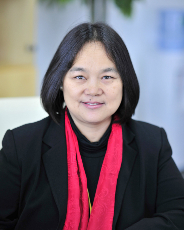 Chih-Lin I (Publications co-chair) received her Ph.D. degree in electrical engineering from Stanford University. She has been working at multiple world-class companies and research institutes leading the R&D, including AT&T Bell Labs; Director of AT&T HQ, Director of ITRI Taiwan, and VPGD of ASTRI Hong Kong. She received the IEEE Trans. COM Stephen Rice Best Paper Award, is a winner of the CCCP National 1000 Talent Program, and has won the 2015 Industrial Innovation Award of IEEE Communication Society for Leadership and Innovation in Next-Generation Cellular Wireless Networks. In 2011, she joined China Mobile as its Chief Scientist of wireless technologies, established the Green Communications Research Center, and launched the 5G Key Technologies R&D. She is spearheading major initiatives including 5G, C-RAN, high energy efficiency system architectures, technologies and devices; and green energy. She was an Area Editor of IEEE/ACM Trans. NET, an elected Board Member of IEEE ComSoc, Chair of the ComSoc Meetings and Conferences Board, and Founding Chair of the IEEE WCNC Steering Committee. She was a Professor at NCTU, an Adjunct Professor at NTU, and currently an Adjunct Professor at BUPT. She is the Chair of FuTURE 5G SIG, an Executive Board Member of GreenTouch, a Network Operator Council Founding Member of ETSI NFV, a Steering Board Member of WWRF, the ComSoc Rep of IEEE 5G Initiative, a member of IEEE ComSoc SDB, SPC, and CSCN-SC, and a Scientific Advisory Board Member of Singapore NRF. Her current research interests center around “Green, Soft, and Open”.
Chih-Lin I (Publications co-chair) received her Ph.D. degree in electrical engineering from Stanford University. She has been working at multiple world-class companies and research institutes leading the R&D, including AT&T Bell Labs; Director of AT&T HQ, Director of ITRI Taiwan, and VPGD of ASTRI Hong Kong. She received the IEEE Trans. COM Stephen Rice Best Paper Award, is a winner of the CCCP National 1000 Talent Program, and has won the 2015 Industrial Innovation Award of IEEE Communication Society for Leadership and Innovation in Next-Generation Cellular Wireless Networks. In 2011, she joined China Mobile as its Chief Scientist of wireless technologies, established the Green Communications Research Center, and launched the 5G Key Technologies R&D. She is spearheading major initiatives including 5G, C-RAN, high energy efficiency system architectures, technologies and devices; and green energy. She was an Area Editor of IEEE/ACM Trans. NET, an elected Board Member of IEEE ComSoc, Chair of the ComSoc Meetings and Conferences Board, and Founding Chair of the IEEE WCNC Steering Committee. She was a Professor at NCTU, an Adjunct Professor at NTU, and currently an Adjunct Professor at BUPT. She is the Chair of FuTURE 5G SIG, an Executive Board Member of GreenTouch, a Network Operator Council Founding Member of ETSI NFV, a Steering Board Member of WWRF, the ComSoc Rep of IEEE 5G Initiative, a member of IEEE ComSoc SDB, SPC, and CSCN-SC, and a Scientific Advisory Board Member of Singapore NRF. Her current research interests center around “Green, Soft, and Open”.
 Meng Lu (Publications co-chair) is Strategic Innovation Manager at Dynniq Nederland B.V., which is an engineering company in the domains of ITS (Intelligent Transportation Systems) and energy. In 2009-2010 she was Visiting Professor at the National Laboratory for Automotive Safety and Energy, Tsinghua University, P.R. China. Since 2002 she is active in the areas of ICT-based ITS and logistics. She has participated in European projects and initiatives since 2005., as Coordinator, WP Leader and/or Partner. Her main R&D area is cooperative, connected and automated transport, including 5G for ITS applications. Dr. Lu is the Co-Chair of WG Industry Engagement, IEEE 5G Initiative and VP of IEEE Intelligent Transportation Systems Society (ITSS).
Meng Lu (Publications co-chair) is Strategic Innovation Manager at Dynniq Nederland B.V., which is an engineering company in the domains of ITS (Intelligent Transportation Systems) and energy. In 2009-2010 she was Visiting Professor at the National Laboratory for Automotive Safety and Energy, Tsinghua University, P.R. China. Since 2002 she is active in the areas of ICT-based ITS and logistics. She has participated in European projects and initiatives since 2005., as Coordinator, WP Leader and/or Partner. Her main R&D area is cooperative, connected and automated transport, including 5G for ITS applications. Dr. Lu is the Co-Chair of WG Industry Engagement, IEEE 5G Initiative and VP of IEEE Intelligent Transportation Systems Society (ITSS).
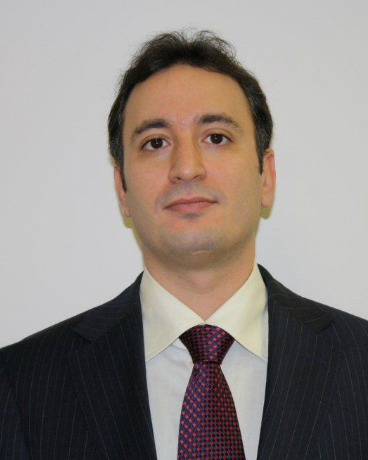 Amine Maaref [SM’12] received the Ph.D. degree in telecommunications from INRS-EMT, University of Quebec, in 2007. He is a senior staff researcher and LTE/NR standardization expert with the Canada Research center (CRC), of Huawei Technologies Co. Ltd., in Ottawa, Ontario, Canada, focusing on 5G radio access design. Prior to joining Huawei, he was with Mitsubishi Electric Research Labs (MERL), the North American arm of the Corporate R&D organization of Mitsubishi Electric Corporation, in Cambridge, MA, USA, as a Research Scientist, where he conducted advanced research in broadband mobile communications. During his time at MERL, he was actively involved in the 3GPP LTE/LTE-Advanced and WiMAX IEEE 802.16m radio access network standardization bodies, co-authoring several contributions and standard proposals in those forums. Over the last 15 years, he has co-authored more than 100 international peer-reviewed publications and standard contributions in the relevant areas, holds more than 50 United States awarded patents and pending patent applications, and received numerous prestigious awards for his outstanding research and scholarly achievements. He was the Guest Editor for several special issues of IEEE journals and magazines and currently serves as an Editor of IEEE Transactions on Wireless Communications and a Managing Editor of IEEE 5G Tech Focus.
Amine Maaref [SM’12] received the Ph.D. degree in telecommunications from INRS-EMT, University of Quebec, in 2007. He is a senior staff researcher and LTE/NR standardization expert with the Canada Research center (CRC), of Huawei Technologies Co. Ltd., in Ottawa, Ontario, Canada, focusing on 5G radio access design. Prior to joining Huawei, he was with Mitsubishi Electric Research Labs (MERL), the North American arm of the Corporate R&D organization of Mitsubishi Electric Corporation, in Cambridge, MA, USA, as a Research Scientist, where he conducted advanced research in broadband mobile communications. During his time at MERL, he was actively involved in the 3GPP LTE/LTE-Advanced and WiMAX IEEE 802.16m radio access network standardization bodies, co-authoring several contributions and standard proposals in those forums. Over the last 15 years, he has co-authored more than 100 international peer-reviewed publications and standard contributions in the relevant areas, holds more than 50 United States awarded patents and pending patent applications, and received numerous prestigious awards for his outstanding research and scholarly achievements. He was the Guest Editor for several special issues of IEEE journals and magazines and currently serves as an Editor of IEEE Transactions on Wireless Communications and a Managing Editor of IEEE 5G Tech Focus.
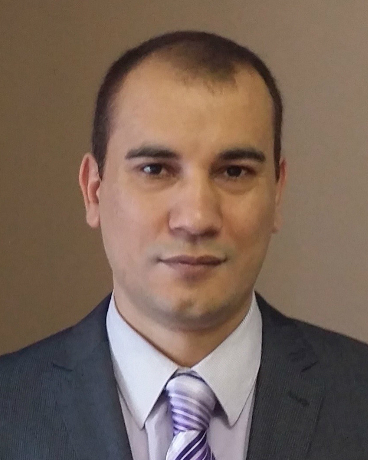 Anwer Al-Dulaimi received the Ph.D. degree in electrical and computer engineering from Brunel University, London, U.K., in 2012 after receiving M.Sc. and B.Sc. honours degrees in communication engineering. He was a Postdoctoral Research Fellow with the department of electrical and computer engineering, University of Toronto, Toronto, Canada. Currently, he is a Senior Systems Engineer in the R&D department at EXFO Inc., Toronto, Canada. Dr. Al-Dulaimi is a member of the IEEE 5G Standards Rapid Action and Networld2020 working groups. He was the recipient of the 2013 Worldwide Universities Network Cognitive Communications Consortium best paper for outstanding research in cognitive communications for his edited book entitled “Self-Organization and Green Applications in Cognitive Radio Networks”.
Anwer Al-Dulaimi received the Ph.D. degree in electrical and computer engineering from Brunel University, London, U.K., in 2012 after receiving M.Sc. and B.Sc. honours degrees in communication engineering. He was a Postdoctoral Research Fellow with the department of electrical and computer engineering, University of Toronto, Toronto, Canada. Currently, he is a Senior Systems Engineer in the R&D department at EXFO Inc., Toronto, Canada. Dr. Al-Dulaimi is a member of the IEEE 5G Standards Rapid Action and Networld2020 working groups. He was the recipient of the 2013 Worldwide Universities Network Cognitive Communications Consortium best paper for outstanding research in cognitive communications for his edited book entitled “Self-Organization and Green Applications in Cognitive Radio Networks”.
 Dr. Ashutosh Dutta is currently Senior Wireless Communication Research Scientist at Johns Hopkins University Applied Physics Labs (Johns Hopkins APL). Most recently he served as Principal Member of Technical Staff at AT&T Labs in Middletown, New Jersey. His career, spanning more than 30 years, includes Director of Technology Security and Lead Member of Technical Staff at AT&T, CTO of Wireless at a Cybersecurity company NIKSUN, Inc., Senior Scientist in Telcordia Research, Director of Central Research Facility at Columbia University, adjunct faculty at NJIT, and Computer Engineer with TATA Motors. He has more than 90 conference and journal publications, three book chapters, and 30 issued patents. Ashutosh is co-author of the book, titled, “Mobility Protocols and Handover Optimization: Design,Evaluation and Application,” published by IEEE and John & Wiley that has recently been translated into Chinese Language. Ashutosh served as the chair for IEEE Princeton / Central Jersey Section, Industry Relation Chair for Region 1 and MGA, Pre-University Coordinator for IEEE MGA and vice chair of Education Society Chapter of PCJS. He co-founded the IEEE STEM conference (ISEC) and helped to implement EPICS (Engineering Projects in Community Service) projects in several high schools. Ashutosh currently serves as the Director of Industry Outreach for IEEE Communications Society and is the founding co-chair for IEEE Future Networks initiative. He also serves as IEEE Communications Society’s Distinguished Lecturer for 2017-2018. He was recipient of the prestigious 2009 IEEE MGA Leadership award and 2010 IEEE-USA professional leadership award. Ashutosh obtained his BS in Electrical Engineering from NIT Rourkela, India, MS in Computer Science from NJIT, and Ph.D. in Electrical Engineering from Columbia University under the supervision of Prof. Henning Schulzrinne. Ashutosh is a senior member of IEEE and ACM.
Dr. Ashutosh Dutta is currently Senior Wireless Communication Research Scientist at Johns Hopkins University Applied Physics Labs (Johns Hopkins APL). Most recently he served as Principal Member of Technical Staff at AT&T Labs in Middletown, New Jersey. His career, spanning more than 30 years, includes Director of Technology Security and Lead Member of Technical Staff at AT&T, CTO of Wireless at a Cybersecurity company NIKSUN, Inc., Senior Scientist in Telcordia Research, Director of Central Research Facility at Columbia University, adjunct faculty at NJIT, and Computer Engineer with TATA Motors. He has more than 90 conference and journal publications, three book chapters, and 30 issued patents. Ashutosh is co-author of the book, titled, “Mobility Protocols and Handover Optimization: Design,Evaluation and Application,” published by IEEE and John & Wiley that has recently been translated into Chinese Language. Ashutosh served as the chair for IEEE Princeton / Central Jersey Section, Industry Relation Chair for Region 1 and MGA, Pre-University Coordinator for IEEE MGA and vice chair of Education Society Chapter of PCJS. He co-founded the IEEE STEM conference (ISEC) and helped to implement EPICS (Engineering Projects in Community Service) projects in several high schools. Ashutosh currently serves as the Director of Industry Outreach for IEEE Communications Society and is the founding co-chair for IEEE Future Networks initiative. He also serves as IEEE Communications Society’s Distinguished Lecturer for 2017-2018. He was recipient of the prestigious 2009 IEEE MGA Leadership award and 2010 IEEE-USA professional leadership award. Ashutosh obtained his BS in Electrical Engineering from NIT Rourkela, India, MS in Computer Science from NJIT, and Ph.D. in Electrical Engineering from Columbia University under the supervision of Prof. Henning Schulzrinne. Ashutosh is a senior member of IEEE and ACM.
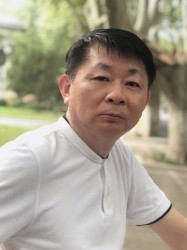 Dr. Geoffrey Ye Li is the Chair Professor in Wireless Systems in Department of EEE, Imperial College London. Before joining Imperial College London in 2020, he was a professor with Georgia Institute of Technology, GA, USA, for 20 years and a Principal Technical Staff Member with AT&T (Bell) Labs - Research in New Jersey, USA, for around 5 years
Dr. Geoffrey Ye Li is the Chair Professor in Wireless Systems in Department of EEE, Imperial College London. Before joining Imperial College London in 2020, he was a professor with Georgia Institute of Technology, GA, USA, for 20 years and a Principal Technical Staff Member with AT&T (Bell) Labs - Research in New Jersey, USA, for around 5 years
He is currently focusing on machine learning and statistical signal processing for wireless communications. His research topics in the past couple decades include machine learning for wireless signal detection and resource allocation, cognitive radios, cross-layer optimisation for spectrum- and energy-efficient wireless networks, OFDM and MIMO techniques for wireless systems, and blind signal processing. More about his research work can be found at his Google Scholar page.
Dr. Geoffrey Ye Li was awarded IEEE Fellow for his contributions to signal processing for wireless communications in 2005. He won several prestigious awards from IEEE Signal Processing Society (Donald G. Fink Overview Paper Award in 2017), IEEE Vehicular Technology Society (James Evans Avant Garde Award in 2013 and Jack Neubauer Memorial Award in 2014), and IEEE Communications Society (Stephen O. Rice Prize Paper Award in 2013, Award for Advances in Communication in 2017, and Edwin Howard Armstrong Achievement Award in 2019). He also received the 2015 Distinguished ECE Faculty Achievement Award from Georgia Tech. He has been recognised as the Highly-Cited Researcher by Thomson Reuters almost every year.
 Gerard Hayes has nearly three decades of experience in government and commercial electromagnetic research and design. Prior to working with the Town of Wake Forest to establish the WRCNC in 2010, Dr. Hayes was the Director of Engineering at GreenWave Scientific where he led the development of antenna and RF circuit designs for a diverse range of DoD applications. At Sony Ericsson Mobile Communications (USA) Inc., Dr.Hayes provided global technical leadership in the Technology and Research organization with contributions to handset antenna design, technology, and radiated performance optimization. At Lockheed Martin (formerly Lockheed Missiles and Space Co.), Dr. Hayes supported research and development efforts for space-based, phased array applications. The scope of his experience encompasses electromagnetic theory, bioelectromagnetics, antenna design, RF circuit analysis, and material engineering. He has participated in the development of international standards for OTA, HAC, and SAR evaluation (including IEEE, IEC, CTIA, and C63 standards). With over 70 US patents, Dr. Hayes has maintained a prominent technical role in the wireless industry.
Gerard Hayes has nearly three decades of experience in government and commercial electromagnetic research and design. Prior to working with the Town of Wake Forest to establish the WRCNC in 2010, Dr. Hayes was the Director of Engineering at GreenWave Scientific where he led the development of antenna and RF circuit designs for a diverse range of DoD applications. At Sony Ericsson Mobile Communications (USA) Inc., Dr.Hayes provided global technical leadership in the Technology and Research organization with contributions to handset antenna design, technology, and radiated performance optimization. At Lockheed Martin (formerly Lockheed Missiles and Space Co.), Dr. Hayes supported research and development efforts for space-based, phased array applications. The scope of his experience encompasses electromagnetic theory, bioelectromagnetics, antenna design, RF circuit analysis, and material engineering. He has participated in the development of international standards for OTA, HAC, and SAR evaluation (including IEEE, IEC, CTIA, and C63 standards). With over 70 US patents, Dr. Hayes has maintained a prominent technical role in the wireless industry.
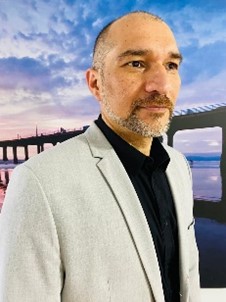 Glaucio H.S. de Carvalho is a Cross-Appointed Assistant Professor in the Department of Computer Science and the Department of Engineering at Brock University, ON, Canada. He obtained his second PhD in Computer Science from Toronto Metropolitan University (TMU), Canada, in 2021 and the first in Electrical Engineering from Federal University of Para (UFPA), Brazil, in 2005. His research interests are AI/ML-assisted Cybersecurity for Critical Infrastructure. Currently, Dr. Carvalho in addressing the security of 5G and beyond (B5G) and 6G.
Glaucio H.S. de Carvalho is a Cross-Appointed Assistant Professor in the Department of Computer Science and the Department of Engineering at Brock University, ON, Canada. He obtained his second PhD in Computer Science from Toronto Metropolitan University (TMU), Canada, in 2021 and the first in Electrical Engineering from Federal University of Para (UFPA), Brazil, in 2005. His research interests are AI/ML-assisted Cybersecurity for Critical Infrastructure. Currently, Dr. Carvalho in addressing the security of 5G and beyond (B5G) and 6G.
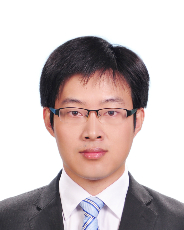 Haijun Zhang is currently a Full Professor in University of Science and Technology Beijing, China. He was a Postdoctoral Research Fellow in Department of Electrical and Computer Engineering, the University of British Columbia (UBC), Vancouver Campus, Canada. He received his Ph.D. degree in Beijing University of Posts Telecommunications (BUPT). From 2011 to 2012, he visited Centre for Telecommunications Research, King's College London, London, UK, as a Visiting Research Associate. Dr. Zhang has published more than 80 papers and authored 2 books. He serves as Editor of Journal of Network and Computer Applications, Wireless Networks, Telecommunication Systems, and KSII Transactions on Internet and Information Systems, and serves/served as a leading Guest Editor for IEEE Communications Magazine, IEEE Transactions on Emerging Topics in Computing and ACM/Springer Mobile Networks & Applications. He serves/served as General Co-Chair of 5GWN'17 and 6th International Conference on Game Theory for Networks (GameNets'16), Track Chair of 15th IEEE International Conference on Scalable Computing and Communications (ScalCom2015), Symposium Chair of the GameNets'14, and Co-Chair of Workshop on 5G Ultra Dense Networks in ICC 2017. His current research interests include 5G, Small Cells, Ultra-Dense Networks, LTE-U and Network Slicing.
Haijun Zhang is currently a Full Professor in University of Science and Technology Beijing, China. He was a Postdoctoral Research Fellow in Department of Electrical and Computer Engineering, the University of British Columbia (UBC), Vancouver Campus, Canada. He received his Ph.D. degree in Beijing University of Posts Telecommunications (BUPT). From 2011 to 2012, he visited Centre for Telecommunications Research, King's College London, London, UK, as a Visiting Research Associate. Dr. Zhang has published more than 80 papers and authored 2 books. He serves as Editor of Journal of Network and Computer Applications, Wireless Networks, Telecommunication Systems, and KSII Transactions on Internet and Information Systems, and serves/served as a leading Guest Editor for IEEE Communications Magazine, IEEE Transactions on Emerging Topics in Computing and ACM/Springer Mobile Networks & Applications. He serves/served as General Co-Chair of 5GWN'17 and 6th International Conference on Game Theory for Networks (GameNets'16), Track Chair of 15th IEEE International Conference on Scalable Computing and Communications (ScalCom2015), Symposium Chair of the GameNets'14, and Co-Chair of Workshop on 5G Ultra Dense Networks in ICC 2017. His current research interests include 5G, Small Cells, Ultra-Dense Networks, LTE-U and Network Slicing.
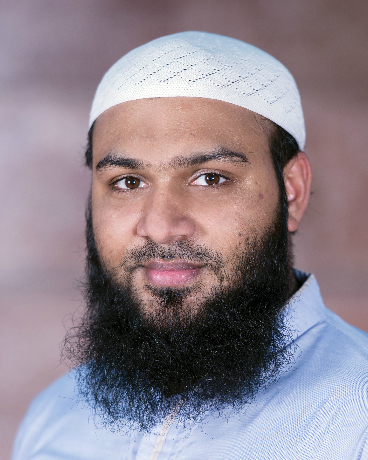 Imran Shafique Ansari is a Postdoc with TAMUQ. He is affiliated with IEEE since 2007 and has served in various capacities. He is serving on the IEEE ComSoc YP Board since April 2016. He is an active reviewer for various IEEE Transactions. He has served as TPC for various IEEE conferences. His current research interests include FSO, physical layer secrecy issues, and full duplex systems.
Imran Shafique Ansari is a Postdoc with TAMUQ. He is affiliated with IEEE since 2007 and has served in various capacities. He is serving on the IEEE ComSoc YP Board since April 2016. He is an active reviewer for various IEEE Transactions. He has served as TPC for various IEEE conferences. His current research interests include FSO, physical layer secrecy issues, and full duplex systems.
 James Irvine is chair of the IEEE 5G Web Portal and Content Development Working Group and co-chair of the IEEE 5G Community Development Working Group. He is also Secretary of the IEEE Vehicular Technology Society, a past president of the Society and founding editor-in-chief of the IEEE Vehicular Technology Magazine. Dr. Irvine is a Reader in the Department of Electronic and Electrical Engineering at the University of Strathclyde in Glasgow, where he leads the Mobile Communications Group. In this interview, Dr. Irvine discusses the implications of 5G mobile technology for connected cars, and related topics.
James Irvine is chair of the IEEE 5G Web Portal and Content Development Working Group and co-chair of the IEEE 5G Community Development Working Group. He is also Secretary of the IEEE Vehicular Technology Society, a past president of the Society and founding editor-in-chief of the IEEE Vehicular Technology Magazine. Dr. Irvine is a Reader in the Department of Electronic and Electrical Engineering at the University of Strathclyde in Glasgow, where he leads the Mobile Communications Group. In this interview, Dr. Irvine discusses the implications of 5G mobile technology for connected cars, and related topics.
 Panagiotis Demestichas received the Diploma and the Ph.D. degrees in Electrical Engineering from the National Technical University of Athens (NTUA). He is full Professor (since April 2012) and has been the Chairman (September 2011 – September 2015) of the Department of Digital Systems of the University of Piraeus. From October 2015 to September 2016 he was on Sabbatical, collaborating with the University of Surrey and in particular its 5G Innovation Center. He has over 25 years of experience in R&D in the fields of wireless/mobile broadband networks, fixed-mobile broadband convergence, Internet technologies, network planning and management, smart utilities, smart cities and environment management.
Panagiotis Demestichas received the Diploma and the Ph.D. degrees in Electrical Engineering from the National Technical University of Athens (NTUA). He is full Professor (since April 2012) and has been the Chairman (September 2011 – September 2015) of the Department of Digital Systems of the University of Piraeus. From October 2015 to September 2016 he was on Sabbatical, collaborating with the University of Surrey and in particular its 5G Innovation Center. He has over 25 years of experience in R&D in the fields of wireless/mobile broadband networks, fixed-mobile broadband convergence, Internet technologies, network planning and management, smart utilities, smart cities and environment management.
Recent interests include 5G aspects, and especially, the exploitation of spectrum beyond 6 GHz, overall spectrum management, 5G architectures, artificial-intelligence-based and predictive management, virtualization technologies based on SDN and NFV. He has several publications in these areas in international journals and refereed conferences. At the European level, he is coordinating and contributing to a number of international research and development programs. He has shaped several development collaborations with international and national industrial entities, as well as public-sector organizations. He has organized the European Conference on Networks and Communications (EUCNC 2016), which took place in Athens, Greece in June 2016, and was focused on technologies and use cases signalling “The Dawn of 5G”. In terms of standardization, he has contributed to various standardization bodies such as ETSI and IEEE. He was also chairing Working Groups of WWRF related to next-generation networking and advanced management technologies. He is a senior member of the IEEE, member of ACM and the Technical Chamber of Greece.
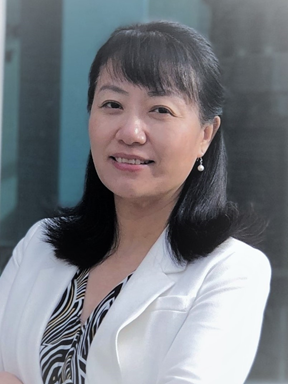 Rose Qingyang Hu is a Professor in the Electrical and Computer Engineering Department and Associate Dean for research of College of Engineering at Utah State University. She also directs Communications Network Innovation Lab at Utah State University. Her current research interests include next-generation wireless system design and optimization, Internet of Things, Cyber Physical system, Mobile Edge Computing, V2X communications, artificial intelligence in wireless networks. Prof. Hu received the B.S. degree from the University of Science and Technology of China, the M.S. degree from New York University, and the Ph.D. degree from the University of Kansas. Besides a decade academia experience, she has more than 10 years of R&D experience with Nortel, Blackberry, and Intel as a Technical Manager, a Senior Wireless System Architect, and a Senior Research Scientist, actively participating in industrial 3G/4G technology development, standardization, system level simulation, and performance evaluation. She has published over 230 papers in top IEEE journals and conferences and also holds numerous patents in her research areas. Prof. Hu is currently serving as the Co-Chair of the International Network Generations Roadmap (INGR), and on the editorial boards of the IEEE Transactions on Wireless Communications, the IEEE Transactions on Vehicular Technology, the IEEE Communications Magazine and the IEEE Wireless Communications. She also served as the TPC Co-Chair for the IEEE ICC 2018. She is an IEEE Communications Society Distinguished Lecturer Class 2015-2018 and a recipient of prestigious Best Paper Awards from the IEEE GLOBECOM 2012, the IEEE ICC 2015, the IEEE VTC Spring 2016, and the IEEE ICC 2016. Prof. Hu is an IEEE Fellow and a member of Phi Kappa Phi Honor Society.
Rose Qingyang Hu is a Professor in the Electrical and Computer Engineering Department and Associate Dean for research of College of Engineering at Utah State University. She also directs Communications Network Innovation Lab at Utah State University. Her current research interests include next-generation wireless system design and optimization, Internet of Things, Cyber Physical system, Mobile Edge Computing, V2X communications, artificial intelligence in wireless networks. Prof. Hu received the B.S. degree from the University of Science and Technology of China, the M.S. degree from New York University, and the Ph.D. degree from the University of Kansas. Besides a decade academia experience, she has more than 10 years of R&D experience with Nortel, Blackberry, and Intel as a Technical Manager, a Senior Wireless System Architect, and a Senior Research Scientist, actively participating in industrial 3G/4G technology development, standardization, system level simulation, and performance evaluation. She has published over 230 papers in top IEEE journals and conferences and also holds numerous patents in her research areas. Prof. Hu is currently serving as the Co-Chair of the International Network Generations Roadmap (INGR), and on the editorial boards of the IEEE Transactions on Wireless Communications, the IEEE Transactions on Vehicular Technology, the IEEE Communications Magazine and the IEEE Wireless Communications. She also served as the TPC Co-Chair for the IEEE ICC 2018. She is an IEEE Communications Society Distinguished Lecturer Class 2015-2018 and a recipient of prestigious Best Paper Awards from the IEEE GLOBECOM 2012, the IEEE ICC 2015, the IEEE VTC Spring 2016, and the IEEE ICC 2016. Prof. Hu is an IEEE Fellow and a member of Phi Kappa Phi Honor Society.
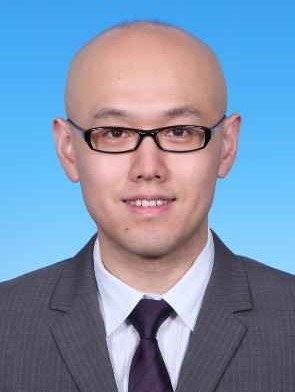 Sen Wang received the B.S. degree of electronic and information engineering from Information Engineering University in 2005, and the Ph.D. degree of information and communication engineering from Beijing University of Posts and Telecommunications (BUPT) in 2013. After graduation in 2013, he joined the Green Communication Research Center (GCRC), China Mobile Research Institute, as a Project Manager. Currently, he is a senior engineer and a 3GPP RAN-1 delegates of CMCC. His research interests include optimization with application to wireless system, 5G/6G air interface technologies, especially on MIMO, waveform and multiple access, radio resource allocation and performance evaluation for future cellular networks. And he has published over 20 IEEE journal and conference papers on IEEE Jsec, CL, ICC, Globecom and WCNC in these areas. He also holds 40 awarded and pending patents applications, and co-authoring more than 50 3GPP standard proposals in the relevant areas. He also serves as a principle member of IMT-2020 requirements and evaluation WG.
Sen Wang received the B.S. degree of electronic and information engineering from Information Engineering University in 2005, and the Ph.D. degree of information and communication engineering from Beijing University of Posts and Telecommunications (BUPT) in 2013. After graduation in 2013, he joined the Green Communication Research Center (GCRC), China Mobile Research Institute, as a Project Manager. Currently, he is a senior engineer and a 3GPP RAN-1 delegates of CMCC. His research interests include optimization with application to wireless system, 5G/6G air interface technologies, especially on MIMO, waveform and multiple access, radio resource allocation and performance evaluation for future cellular networks. And he has published over 20 IEEE journal and conference papers on IEEE Jsec, CL, ICC, Globecom and WCNC in these areas. He also holds 40 awarded and pending patents applications, and co-authoring more than 50 3GPP standard proposals in the relevant areas. He also serves as a principle member of IMT-2020 requirements and evaluation WG.
 Shugong Xu is a full professor at Shanghai University, an IEEE Fellow, head of the Shanghai Institute for Advanced Communication and Data Science (SICS). In his 20+ years career in research (over 15 years in industrial research labs, including Sharp Labs of America, Huawei 2012 Labs and Intel Labs ), he had over 40 issued US/WO/CN patents and published more than 80 peer-reviewed research papers. His work was among the major triggers to the research and standardization of IEEE 802.11S. He founded and directed the green radio project GREAT at Huawei, led the China national 863 theme project on green networks as PI, and served as co-chair of the Technical Committee of Green Touch Consortium. He was awarded "National Innovation Leadership Talent" by China government in 2013. Shugong received his BS degree from Wuhan University, ME and PhD degrees from Huazhong University of Science and Technology (HUST). His current research interests includes 5G systems and big data.
Shugong Xu is a full professor at Shanghai University, an IEEE Fellow, head of the Shanghai Institute for Advanced Communication and Data Science (SICS). In his 20+ years career in research (over 15 years in industrial research labs, including Sharp Labs of America, Huawei 2012 Labs and Intel Labs ), he had over 40 issued US/WO/CN patents and published more than 80 peer-reviewed research papers. His work was among the major triggers to the research and standardization of IEEE 802.11S. He founded and directed the green radio project GREAT at Huawei, led the China national 863 theme project on green networks as PI, and served as co-chair of the Technical Committee of Green Touch Consortium. He was awarded "National Innovation Leadership Talent" by China government in 2013. Shugong received his BS degree from Wuhan University, ME and PhD degrees from Huazhong University of Science and Technology (HUST). His current research interests includes 5G systems and big data.
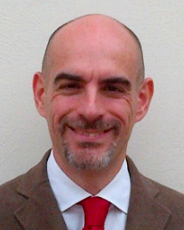 Stefano Buzzi (SM’07) received the Ph.D. degree in electronic engineering and computer science from the University of Naples Federico II, Naples, Italy, in 1999. He is currently an Associate Professor with the Department of Electrical and Information Engineering, University of Cassino and Southern Lazio, Cassino, Italy. He is the author or coauthor of about 60 journal papers and 90 conference papers. His research interests include statistical signal processing and resource allocation for communications, with emphasis on wireless communications, energy-efficient communications, and 5G cellular networks.
Stefano Buzzi (SM’07) received the Ph.D. degree in electronic engineering and computer science from the University of Naples Federico II, Naples, Italy, in 1999. He is currently an Associate Professor with the Department of Electrical and Information Engineering, University of Cassino and Southern Lazio, Cassino, Italy. He is the author or coauthor of about 60 journal papers and 90 conference papers. His research interests include statistical signal processing and resource allocation for communications, with emphasis on wireless communications, energy-efficient communications, and 5G cellular networks.
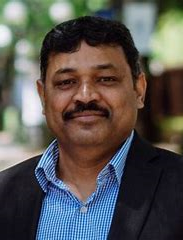 Thas Nirmalathas is a Professor of Electrical and Electronic Engineering. He is also the Head of Electronic and Photonic Systems Research Group at the Department of Electrical and Electronic Engineering, The University of Melbourne. Prof Nirmalathas obtained his BEng and PhD in Electrical and Electronic Engineering from the University of Melbourne in 1993 and 1998 respectively.
Thas Nirmalathas is a Professor of Electrical and Electronic Engineering. He is also the Head of Electronic and Photonic Systems Research Group at the Department of Electrical and Electronic Engineering, The University of Melbourne. Prof Nirmalathas obtained his BEng and PhD in Electrical and Electronic Engineering from the University of Melbourne in 1993 and 1998 respectively.
Between 2000 and 2004, he was the Director of Photonics Research Laboratory (Melbourne Node of Australian Photonics CRC) and also the Program Leader of Telecommunications Technologies Program. From 2004 to 2006, he was the Program Leader for the Network Technologies Research Program in NICTA. He was also the acting Lab Director of VRL in 2007. Between 2006 and 2008, He was the Research Group Manager of the Networked Systems Group of Victoria Research Laboratory (VRL) at the National ICT Australia (NICTA), a premier Australian research centre of excellence in ICT. Between 2010 and 2012, he was the Head, Department of Electrical and Electronic Engineering at the University of Melbourne. In 2012, he co-founded the Melbourne Accelerator Program (MAP http://themap.co) to support the entrepreneurial activities of the University Community through business acceleration methodologies and was the director of MAP until 2015. He was the Director of Networked Society Institute between 2014 and 2019 and provided leadership to the institute. Networked Society Institute was a catalyst in supporting interdisciplinary research tackling societal challenges through exploration of connectivity between people, places, and things. His research interests include microwave photonics, optical-wireless network integration, optical wireless access networks, optical x-haul of mobile networks, broadband networks, and energy efficiency and scalability of telecom and Internet services.
He has serviced as chair of steering committees of Asia Pacific Microwave Photonics and IEEE Topical Meeting on Microwave Photonics Conference series in 2008/2009. He is also a member of the Steering Committee for the International Conference on Optical Internet (COIN). He was also Guest Editor for Special Issue on Opto-Electronics and Communications of the IEICE Transactions in Communications. He was the General Co-Chair of 2008 IEEE Topical Meeting on Microwave Photonics/ Asia Pacific Microwave Photonics 2008. He is currently an Associate Editor of IEEE/OSA Journal of Lightwave Technology. He is a Senior Member of IEEE and the Optical Society of America, and a Fellow of the Institution of Engineers Australia.
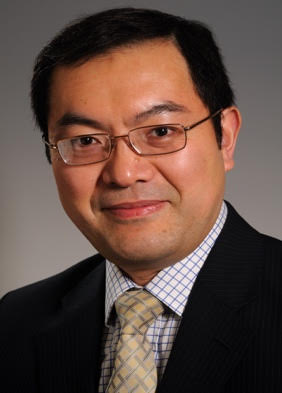 Yang Hao is a Professor of Antennas and Electromagnetics at Queen Mary University of London. He also serves in the management team of Cambridge Graphene Centre from 2013. He is active in a number of areas, including computational electromagnetics, microwave metamaterials and transformation optics, antennas and radio propagation for body centric wireless networks, active antennas for millimeter/sub-millimeter
Yang Hao is a Professor of Antennas and Electromagnetics at Queen Mary University of London. He also serves in the management team of Cambridge Graphene Centre from 2013. He is active in a number of areas, including computational electromagnetics, microwave metamaterials and transformation optics, antennas and radio propagation for body centric wireless networks, active antennas for millimeter/sub-millimeter
He won 2015 IET AF Harvey Research Prize and is a co-recipient of BAE Chairman’s Silver Award in 2014 and the Royal Society Wolfson Research Merit Award. Prof. Hao is an elected Fellow of the ERA Foundation, IET and IEEE.
Professor Yang Hao received the Ph.D. degree from the Centre for Communications Research (CCR) at the University of Bristol, U.K. in 1998. From 1998 to 2000, he was a postdoc research fellow at the School of Electrical and Electronic Engineering, University of Birmingham, U.K.
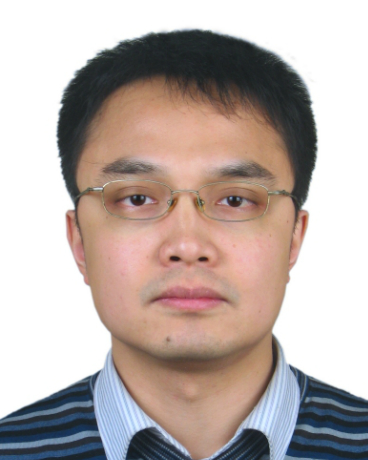 Yunlong Cai received the Ph.D. degree in electronic engineering from the University of York. He has been with the Zhejiang University, where he is currently an Associate Professor. His research interests include transceiver design for multiple-antenna systems, adaptive filtering, full-duplex communications, cooperative communications, and wireless information and energy transfer. He is an IEEE senior member.
Yunlong Cai received the Ph.D. degree in electronic engineering from the University of York. He has been with the Zhejiang University, where he is currently an Associate Professor. His research interests include transceiver design for multiple-antenna systems, adaptive filtering, full-duplex communications, cooperative communications, and wireless information and energy transfer. He is an IEEE senior member.
 Zhi Ning Chen received his BEng, MEng, and PhD degrees all in Electrical Engineering from the Institute of Communications Engineering (ICE), China and his second PhD degree from the University of Tsukuba, Japan, respectively. Since1988 he has worked several universities, research organizations and industry research centers as a professor, researcher and manager. In 2012, he joined the Department of Electrical and Computer Engineering, National University of Singapore as a tenured Full Professor. Professor Chen is the founding General Chairs of four international events. Currently Dr Chen is interested in electromagnetic engineering and antennas/sensors for communication, radar, imaging and sensing systems. He has published more than 580 academic papers and five books including Handbook of Antenna Technologies with 76 chapters (by Springer References in 2016 as an Editor-in-Chief). He is holding 28 granted/ filed patents with 35 licensed deals with industry. He is the recipient of many international best paper and outstanding engineering awards. Dr Chen elevated a Fellow of the IEEE for the contribution to small and broadband antennas for wireless applications in 2007. He has served IEEE Council on RFID as a Vice President and a Distinguished Lecturer since 2015. He severed IEEE Transaction on Antennas and Propagation as an Associate Editor and IEEE Antennas and Propagation Society as a Distinguished Lecturer.
Zhi Ning Chen received his BEng, MEng, and PhD degrees all in Electrical Engineering from the Institute of Communications Engineering (ICE), China and his second PhD degree from the University of Tsukuba, Japan, respectively. Since1988 he has worked several universities, research organizations and industry research centers as a professor, researcher and manager. In 2012, he joined the Department of Electrical and Computer Engineering, National University of Singapore as a tenured Full Professor. Professor Chen is the founding General Chairs of four international events. Currently Dr Chen is interested in electromagnetic engineering and antennas/sensors for communication, radar, imaging and sensing systems. He has published more than 580 academic papers and five books including Handbook of Antenna Technologies with 76 chapters (by Springer References in 2016 as an Editor-in-Chief). He is holding 28 granted/ filed patents with 35 licensed deals with industry. He is the recipient of many international best paper and outstanding engineering awards. Dr Chen elevated a Fellow of the IEEE for the contribution to small and broadband antennas for wireless applications in 2007. He has served IEEE Council on RFID as a Vice President and a Distinguished Lecturer since 2015. He severed IEEE Transaction on Antennas and Propagation as an Associate Editor and IEEE Antennas and Propagation Society as a Distinguished Lecturer.
Subscribe to Tech Focus
Join our IEEE Future Networks Technical Community and receive IEEE Future NetworksTech Focus delivered to your email.
Article Contributions Welcome
Submit Manuscript via Track Chair
Author guidelines can be found here.
Other Future Networks Publications
IEEE Future Networks Tech Focus Editorial Board
Rod Waterhouse, Editor-in-Chief
Mithun Mukherjee, Managing Editor
Imran Shafique Ansari
Anwer Al-Dulaimi
Stefano Buzzi
Yunlong Cai
Zhi Ning Chen
Panagiotis Demestichas
Ashutosh Dutta
Yang Hao
Gerry Hayes
Chih-Lin I
James Irvine
Meng Lu
Amine Maaref
Thas Nirmalathas
Sen Wang
Shugong Xu
Haijun Zhang
Glaucio Haroldo Silva de Carvalho

